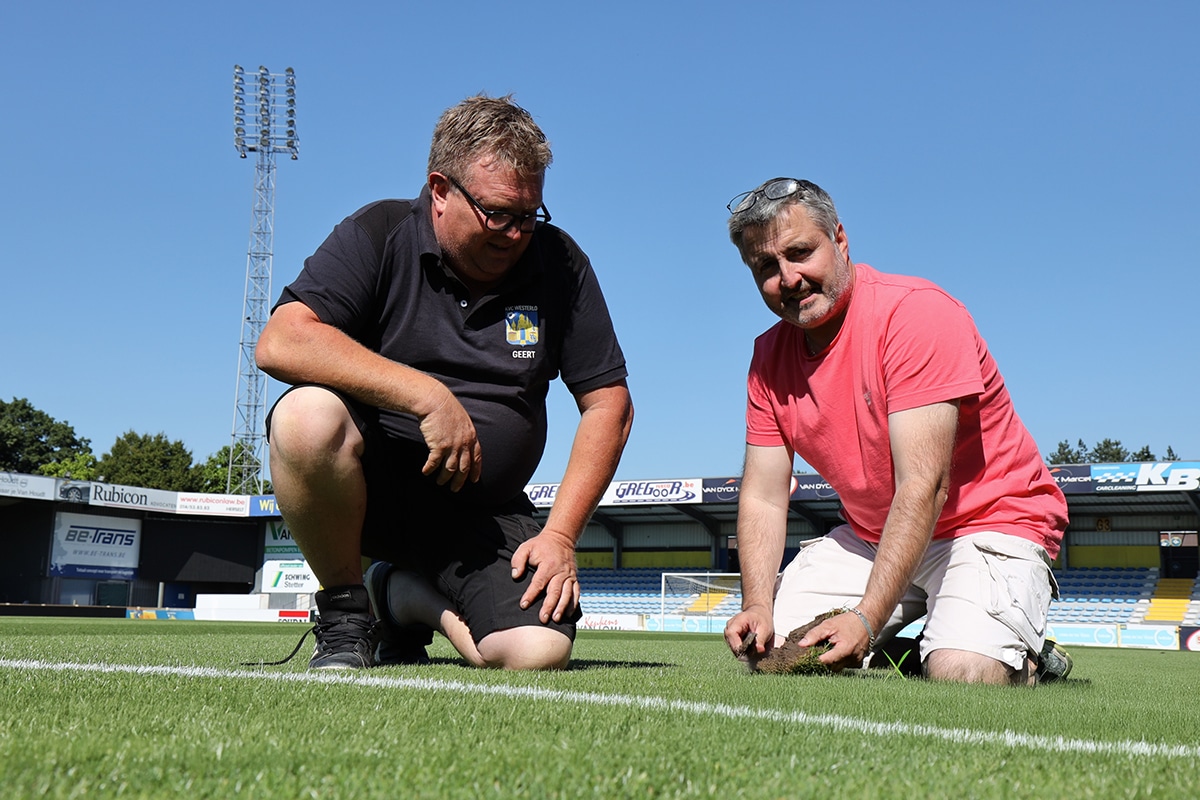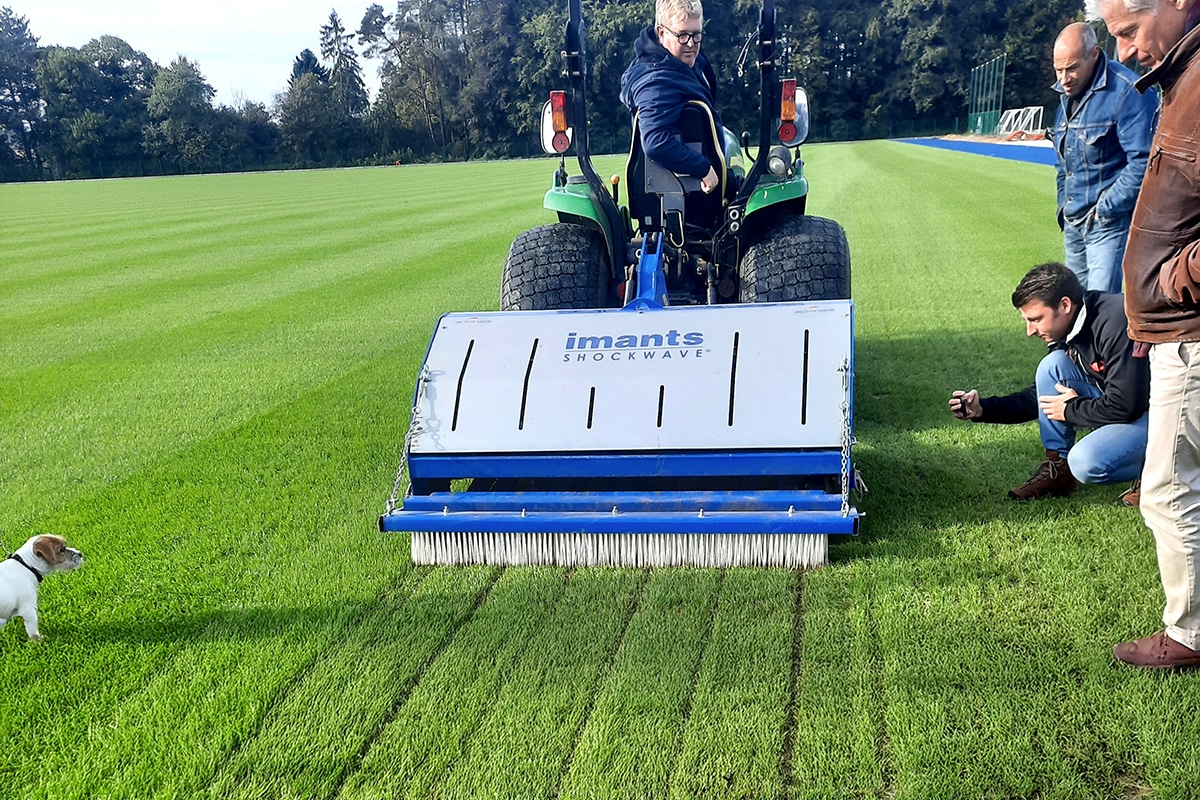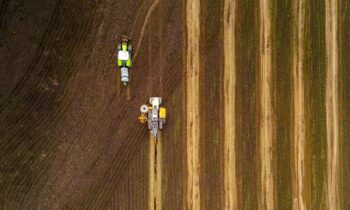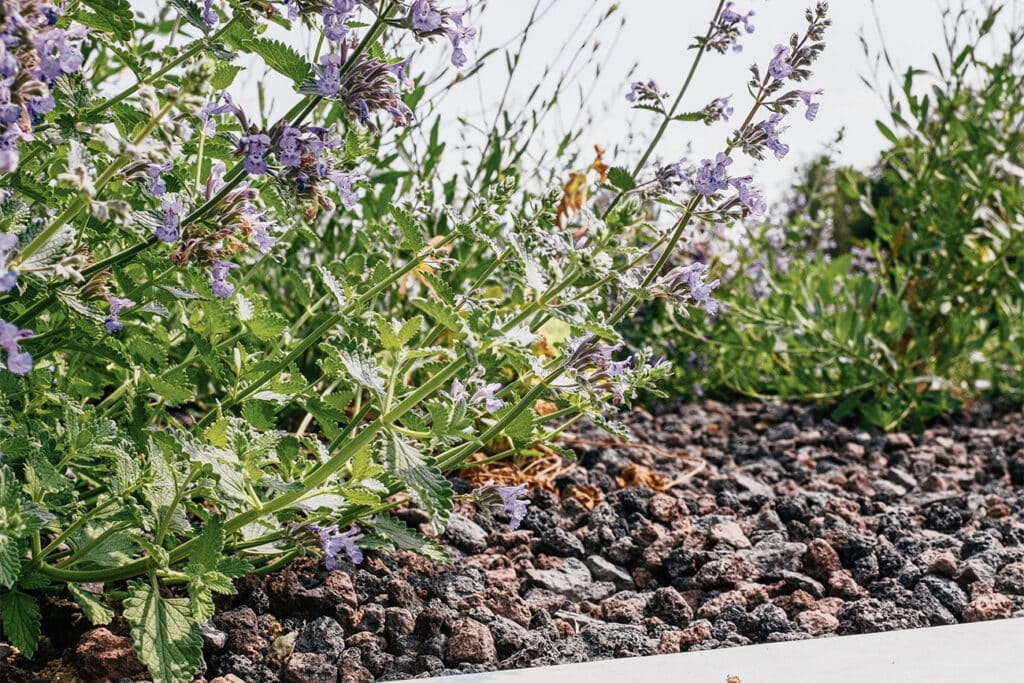
'Leaudegem' is not rocket science, but pure nature
Decentralized water treatment in Ledegem
This summer broke one record after another. With a total of barely 23 millimeters of precipitation, July and August became the driest months since records began in 1833. These are the figures from the RMI. Not only Flanders, but all of Europe groaned under the heat. In Ledegem in West Flanders, a smart and simple approach was taken to the problem of water shortage.
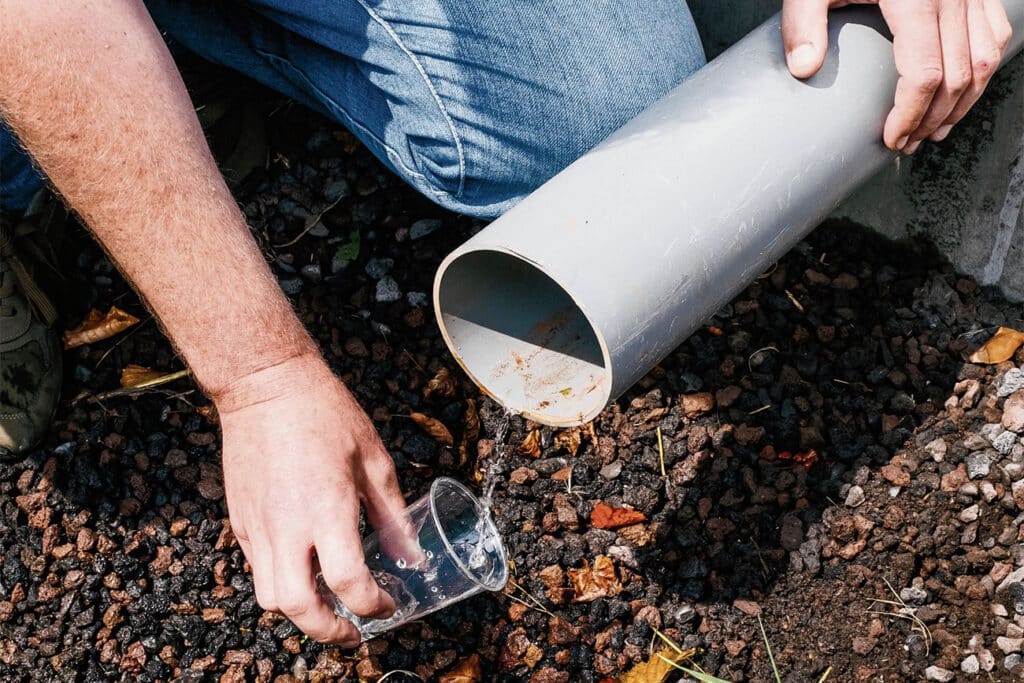
Dry riverbeds, blocked inland waterways, trucks forced to supply entire regions of France with drinking water, crops scorched all over the fields: 47 percent of the European territory was subject to a drought warning, in 17 percent the alert threshold was exceeded. Even the greatest climate skeptic must have understood last summer how inextricably linked the fate of the human species is to water. During that same long hot summer, the sanitation project "Leaudegem" was completed in the West Flemish town of Ledegem.
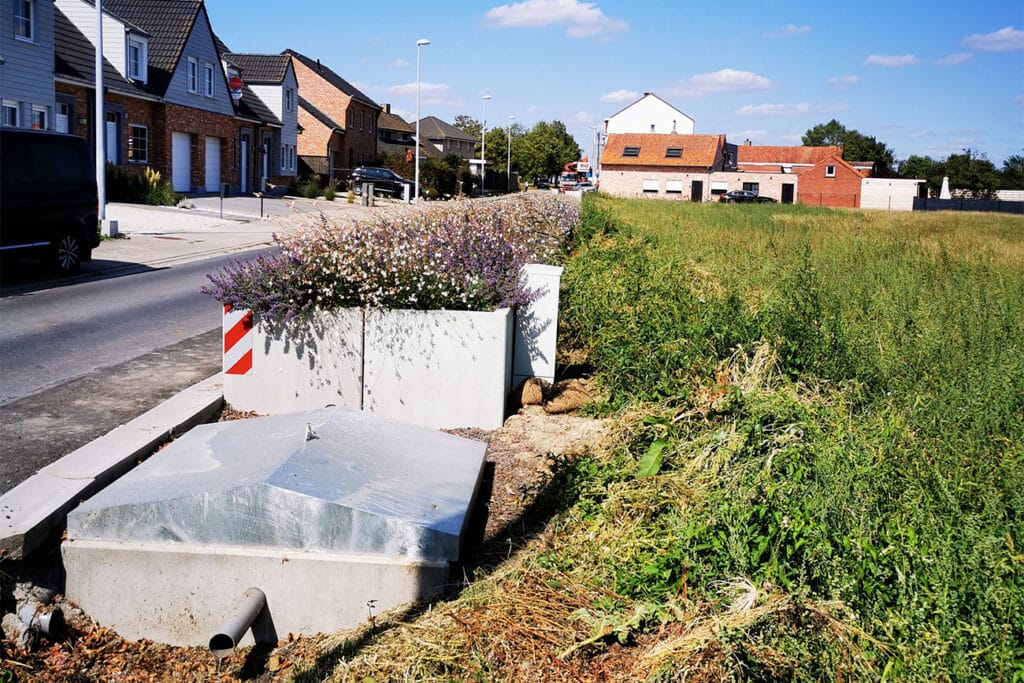
Zoning and implementation plans (VMM).
In Flanders, all sanitation projects are defined within the zoning and implementation plans of the Flemish Environment Agency (VMM). The discharge conditions are included in VLAREM Title II and vary according to the zone in which the discharge of domestic wastewater can be accommodated: the central area, the collectively optimized outside area, the collectively optimized outside area, the individually optimized outside area.
Annually, a zoning plan can be updated to the actual condition. Hereby executed (sewerage) projects are taken into account. Everything is then laid down in a Water Implementation Program (WUP). The 'Area-wide Implementation Plan' (GUP) builds on the zoning plan and regulates the execution and timing of the sanitation projects to be carried out and their mutual coordination. Priorities and corresponding timing are set.
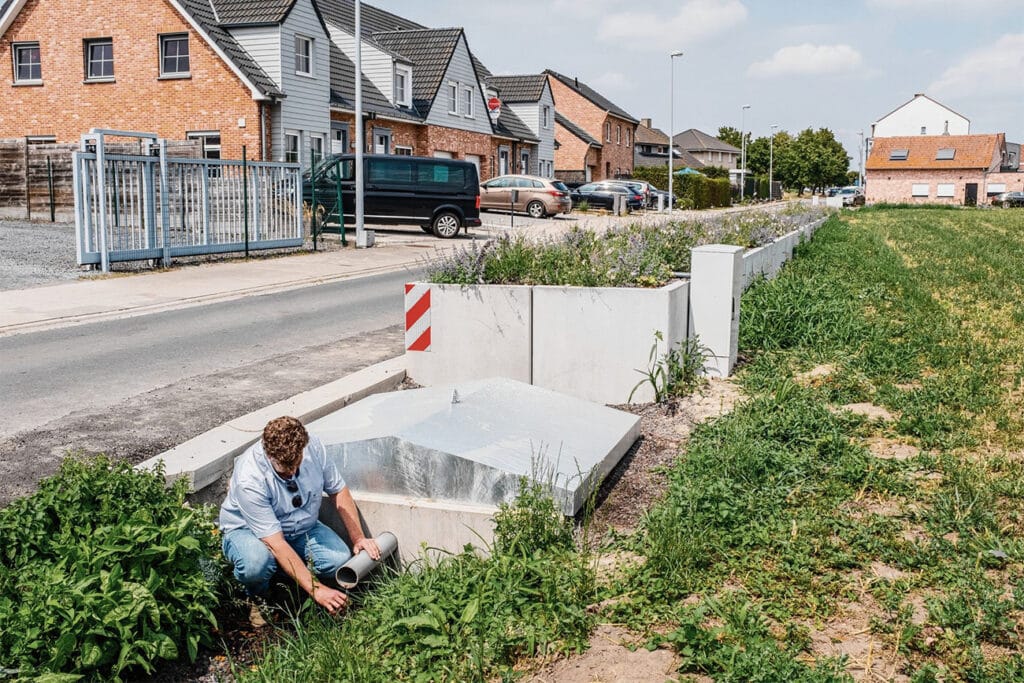
Untenable situation
In the case of the Sint-Pietersstraat - where discharges into a trench via a sewer pipe had been causing odor nuisance for years - this meant that the problem could not be dealt with until, say, 12 to 15 years from now. Connecting wastewater to the transport system also involves a very heavy investment burden. This is borne by both the municipalities and Flanders. In fact, Flanders pays 75 percent of the sewage project carried out back to the local governments.
This situation occurs in many places in Flanders: the collectively optimizable outlying area still includes more than 340,000 homes. The challenge that arises is the wastewater transport system from outlying areas to sewage treatment plants (WWTPs). The basic idea among governments was that they would be the last to provide sewerage to the outlying areas, but this is barely happening and, in any case, far too slowly. There are still 8,500 to 10,000 kilometers of sewers to be built. An untenable situation.
Water treatment based on plant systems
Ledegem sticks its neck out and goes for the decentralized solution, backed by a subsidy project. Within the European Blue Deal, the Flemish Ministry of the Environment developed a framework to support demonstrative projects. So innovative, alternative, but at the same time qualitative solutions were sought for wastewater facilities (without sewers) in the countryside.
One is local water treatment based on plant systems (helophyte filter). When a restaurant in Kuurne succeeded in using such a helophyte filter to recycle wastewater from the kitchen and flush water from the toilets into drinking water, it made the television news. Mobile water purification plants were used to purify wastewater at Flemish and Dutch music festivals.
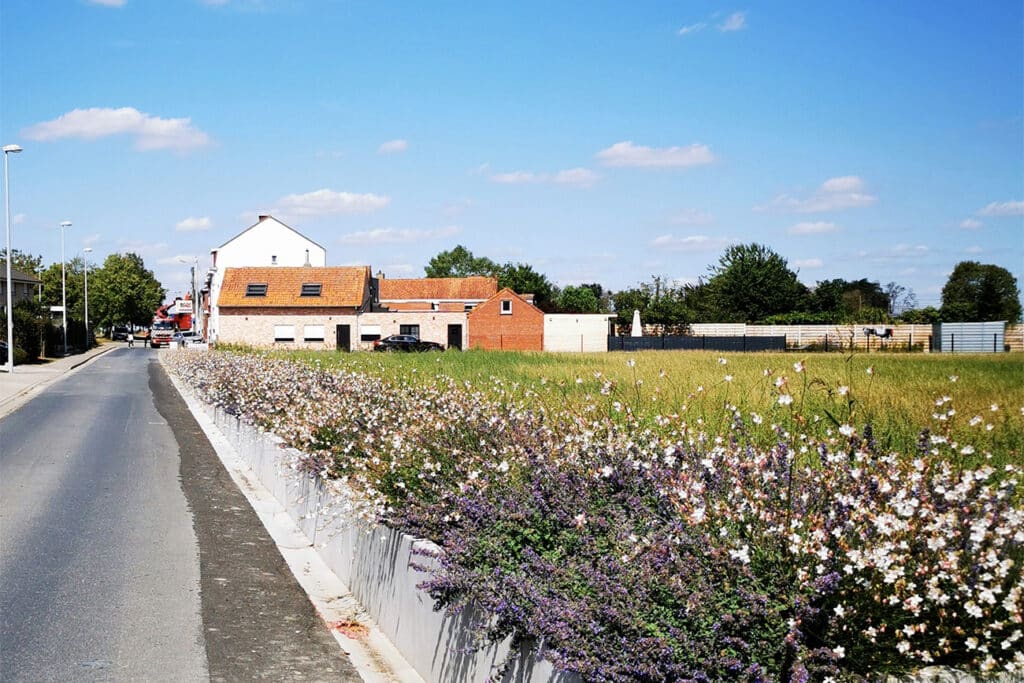
Ledegem becomes Leaudegem
And then there is the Leaudegem project, with HelloWater as the lead technical partner. It's all not rocket science, but pure nature. First, all wastewater is collected in a pre-sedimentation tank (step 1). Then the wastewater is injected/pumped into a helophyte filter (step 2). The interplay of plants and bacterial life in the substrate (step 3) already provides removal rates between 96% and 100% for organic loading, suspended solids and ammonium (BENOR approval efficiency).
Then an innovative post-purification called FOSCUBE provides thorough phosphate removal (step 4).
A possible disadvantage of plant-based treatment is the surface area required. In Ledegem, the helophyte filter was placed directly on the ditch, so no farmland or other useful land had to be taken. The surface is covered with flowering plants, which actually boost biodiversity. The plant itself consists of prefabricated elements that can be easily removed or added. This makes the setup flexible and scalable as houses are added. CBS Beton from Wielsbeke was called in for those prefab elements.
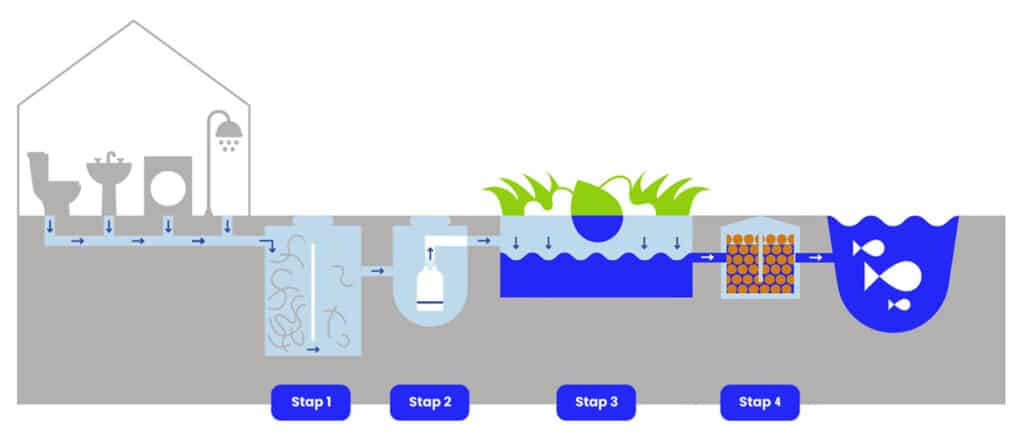
Collaboration with CBS Concrete
CBS Concrete is the specialist in precast concrete elements for the agricultural and infrastructure market. CBS Concrete products are used in general contracting works, industrial projects, in agriculture and horticulture, silos and agricultural buildings, biogas plants, public procurement and private projects.
Marc Vandeputte, marketing and communication manager CBS Beton: "Our retaining walls are used to effortlessly bridge height differences at ramps and exits, gentle slopes, emergency lanes and parking lots. Our L-shaped retaining walls (CLF10GS range) are used as modern infrastructure solutions in earthworks, road construction, landscaping and hydraulic engineering. The walls have a smooth finish and meet the highest quality standards for concrete."
"CBS Concrete is also the first Belgian manufacturer to have a BENOR certificate, which ensures that the retaining walls meet all Belgian and European quality expectations in the sector. For this innovative water treatment system, we delivered 400 kilometers of CLF10GS L retaining walls."
Wouter Igodt: "The collaboration with CBS Concrete came about with an eye on sustainability. Cement has a well-known carbon footprint, which we wanted to see reduced in our water treatment plants. For this we turned to Resourcefull. They offer a cement alternative based on the use of by-products from the metallurgical and mining industries. CBS Concrete and Resourcefull joined forces earlier, in an Interreg project: Upcycling Concrete. So that collaboration, including delivery and installation, went super smoothly."
"Leaudegem, under the slogan, 'You go faster alone, you go further together,' went for a co-creative collaboration. Consequently, the modular-sustainable wastewater treatment plants produced a result we are all proud of."
Heeft u vragen over dit artikel, project of product?
Neem dan rechtstreeks contact op met CBS Concrete.
 Contact opnemen
Contact opnemen

